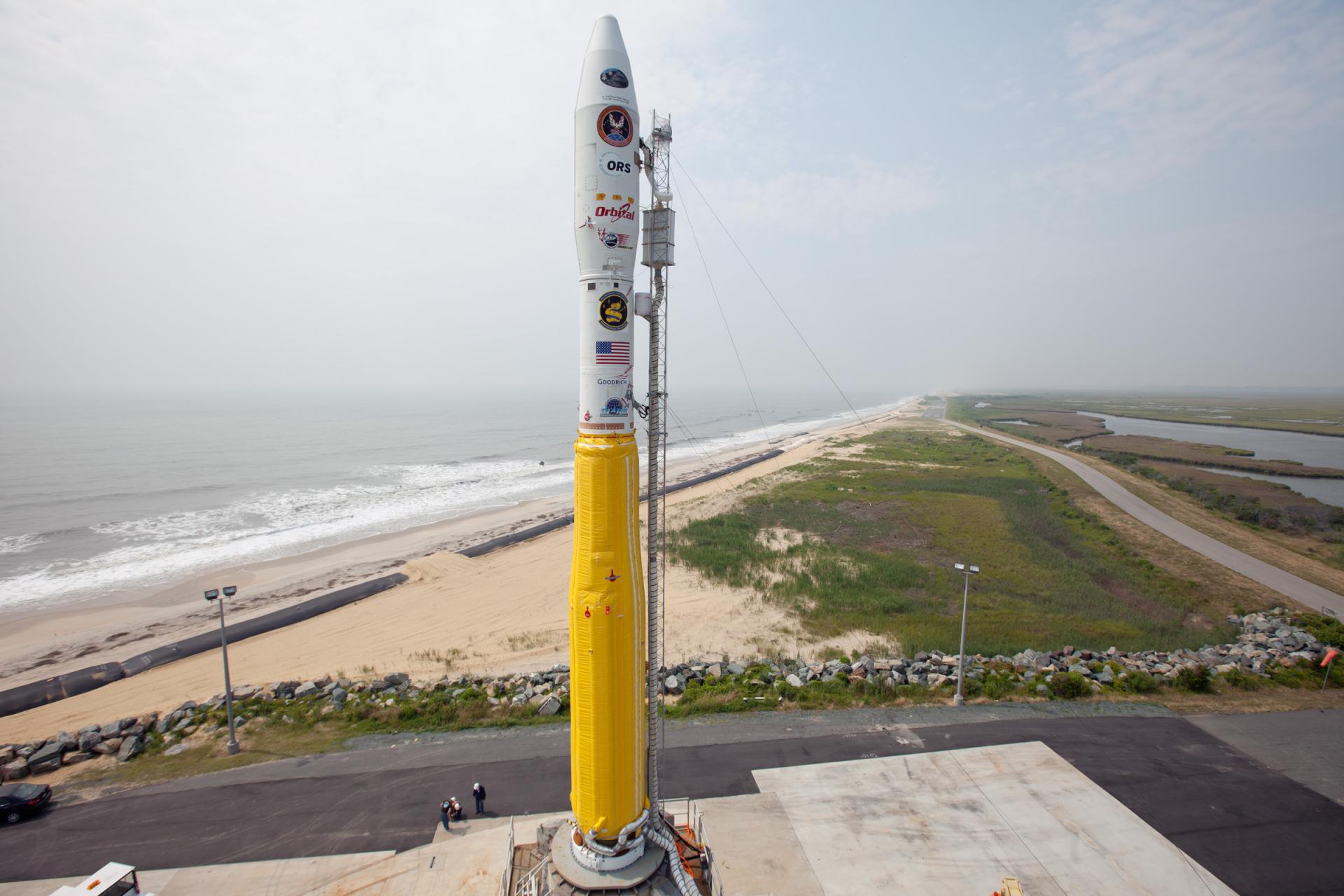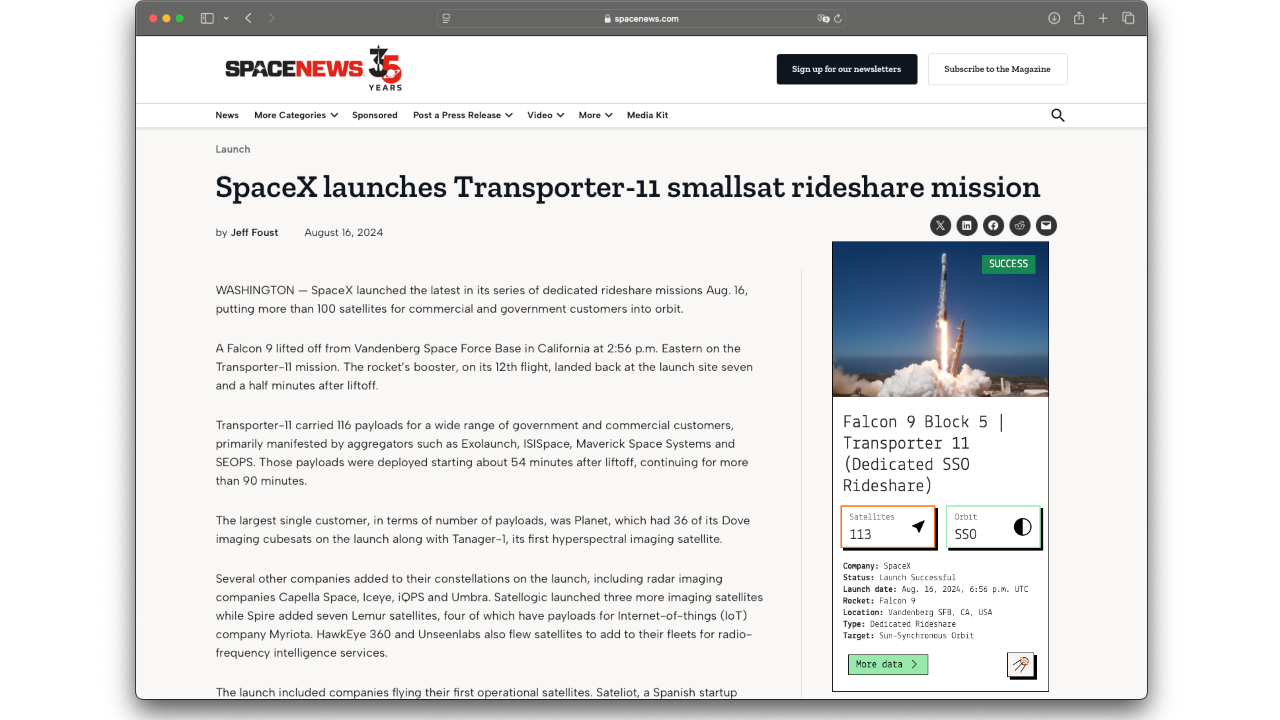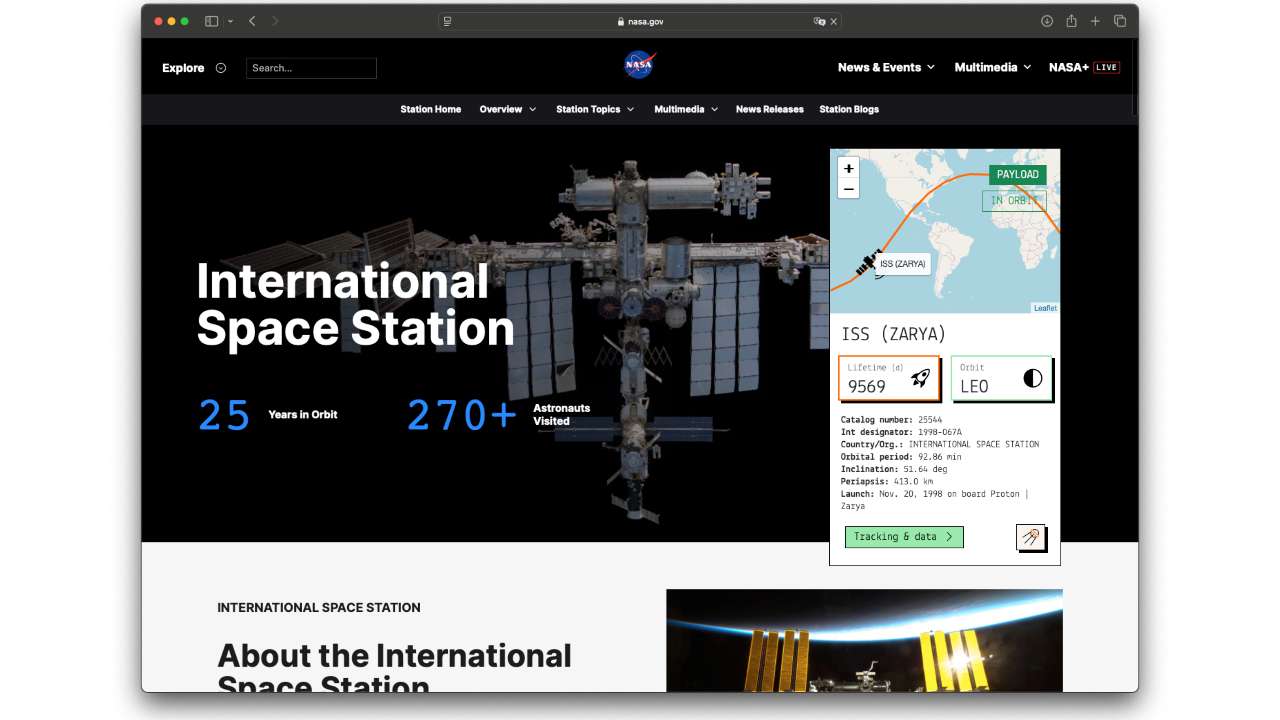Key statistics
Satellite OPAL at a glance.
Uptime
9452
Days in orbit
Revolutions
≈ 14.4
Per day
Orbit
SSO
Sun Synchronous Orbit
Inclination
100.2
Latest
Satellite identification and parameters
Extended collection of information and parameters for OPAL.
Object identification
Identified? True
Debris? False
Object name: OPAL
International designator: 2000-004C
Object number (NORAD): 26063
Object ID (CCSDS): 26063
Country: UNITED STATES OF AMERICA (US)
Current information (Y/N): Y
RCS size: MEDIUM
Orbital parameters
Period: 100.148 minutes
Inclination: 100.191 deg
SMA: 7143.667 km
Apoapsis: 790.89 km
Periapsis: 740.174 km
RAAN: 243.6853 deg
Eccentricy: 0.00354967
Argument of periapsis: 202.5075 deg
Mean anomaly: 157.4551 deg
Mean motion: 14.37874428 rev/day
Mean motion (dot): 0.000003 rev/day2
B* drag term: 0.00011814409 1/REarth
Two-line elements (TLE)
Creation date: Dec. 12, 2025, 10:14 a.m.
Reference frame: TEME
Reference center: EARTH
Epoch: Dec. 12, 2025, 6:40 a.m. UTC
TLE line 0: 0 OPAL
TLE line 1: 1 26063U 00004C 25346.27815730 .00000300 00000-0 11814-3 0 9995
TLE line 2: 2 26063 100.1910 243.6853 0035497 202.5075 157.4551 14.37874428356427
Live tracking on map
Real-time ground track for satellite OPAL.
In-orbit conjunctions
A list of the most updated potential collisions computed for object OPAL.
Associated space launch
The JAWSAT (Joint Air Force Academy / Weber State University Satellite) project was developed by students working alongside aerospace professionals. Initially designed with a pulsed-plasma thruster to train Air Force Academy cadets (see JAWSAT), the mission has since evolved to include the efforts of several universities, local aerospace companies, the Air Force Academy, the Air Force Research Laboratory, and NASA. Utilizing breakthrough technologies, JAWSAT deployed four satellites when it reached orbit. The onboard imaging system recorded the deployment of each payload with its six digital cameras. The first free-flying Academy satellite, FalconSat-1 carried the CHAWS (Charging Hazards and Wake Studies) experiment developed by the Physics Department at the Academy.
OPAL was lifted into orbit during the mission ‘Minotaur I | JAWSAT & FalconSat 1’, on board a Minotaur I space rocket.
The launch took place on Jan. 27, 2000, 3:03 a.m. from Space Launch Complex 8.
For more information about the launch, click the button.

Minotaur I | JAWSAT & FalconSat 1
Agency: N/A
Status: Launch Successful
Launch date: Jan. 27, 2000, 3:03 a.m. UTC
Rocket: Minotaur I
Launch pad: Space Launch Complex 8
Location: Vandenberg SFB, CA, USA
...
Latest news about this satellite
There are no fresh news available about this satellite. Check back as we update our databases every day.
Newsletter sign-up
Weekly statistics, charts and insights to help you stay on top of the space industry.




